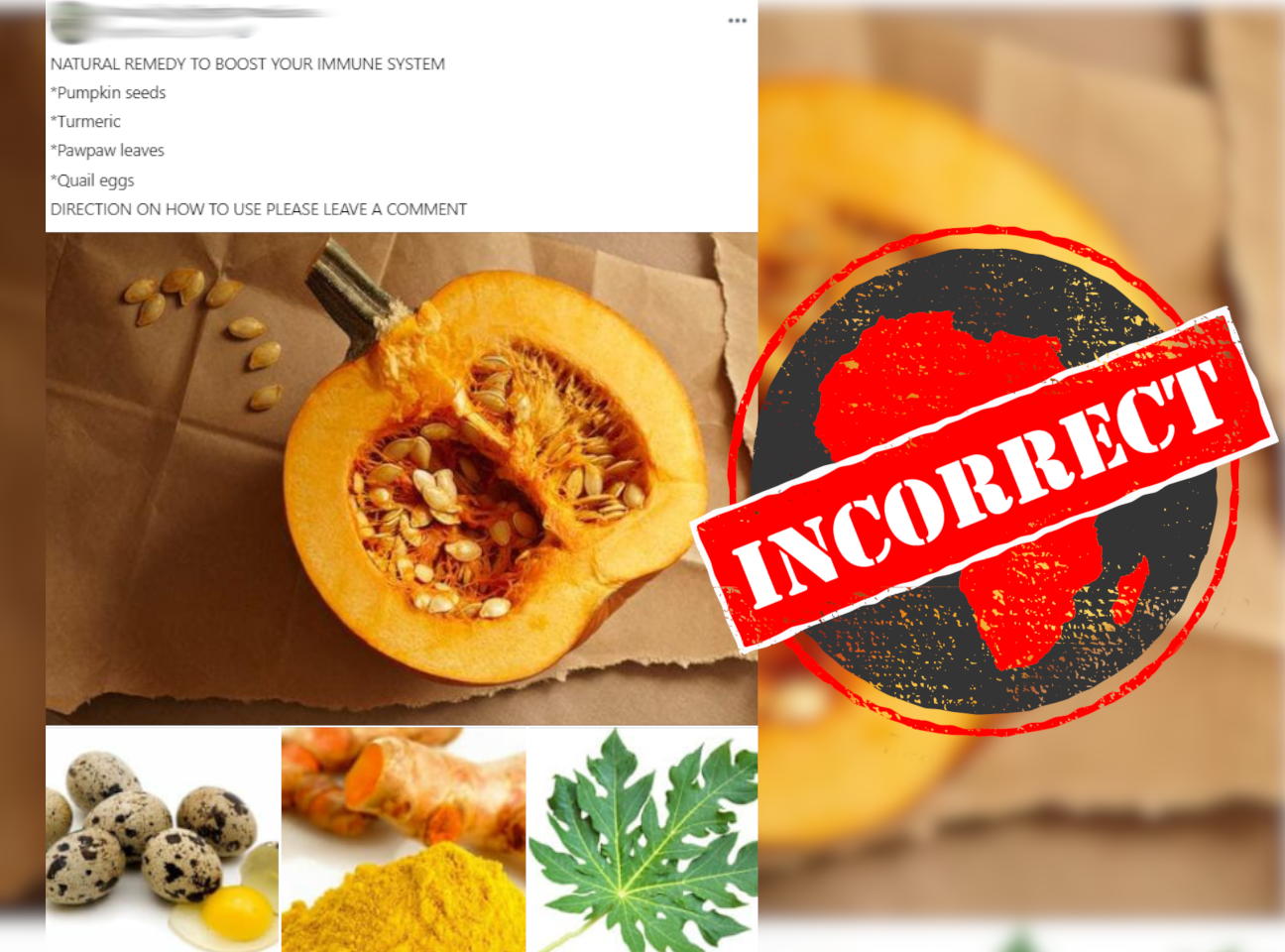“Natural remedy to boost your immune system,” reads a message posted on the Facebook page “Natural food/herbs medicine”, operated in Nigeria.
It claims pumpkin seeds, turmeric, pawpaw leaves and quail eggs are natural remedies to boost the immune system.
But will this remedy really improve your immunity? We checked.

Healthy immune system needs healthy lifestyle
The immune system is the body's way of protecting itself against infections and diseases.
Some factors that may weaken the immune system include old age, environmental toxins, excess weight, poor diet, chronic diseases, chronic mental stress, and lack of sleep or rest.
We asked Henrietta Ene-Obong, a professor of human nutrition at the University of Calabar in southern Nigeria, about the truth of the claim.
“What we eat plays a key role,” she said. “It is not about a particular food or set of foods alone. What is needed is an adequate diet that contains all the essential nutrients that the body requires to function effectively.
“There is no one nutrient that can do all the magic. In the body we have interrelationship of nutrients: for one nutrient to function effectively it might require another nutrient to be available.”
Ene-Obong added that the nutrients from food, such as protein, vitamins and minerals, were key to boosting the immune system. If a person doesn’t get enough nutrients, their immune system could be compromised.
The US Harvard School of Public Health says the immune system is “complex and influenced by an ideal balance of many factors, not just diet, and especially not by any one specific food or nutrient”.
It adds that eating a balanced diet that includes a range of vitamins and minerals, living a healthy lifestyle, getting enough sleep, exercising and minimising stress may help the body fight infection and disease.
Republish our content for free
For publishers: what to do if your post is rated false
A fact-checker has rated your Facebook or Instagram post as “false”, “altered”, “partly false” or “missing context”. This could have serious consequences. What do you do?
Click on our guide for the steps you should follow.
Publishers guideAfrica Check teams up with Facebook
Africa Check is a partner in Meta's third-party fact-checking programme to help stop the spread of false information on social media.
The content we rate as “false” will be downgraded on Facebook and Instagram. This means fewer people will see it.
You can also help identify false information on Facebook. This guide explains how.


Add new comment